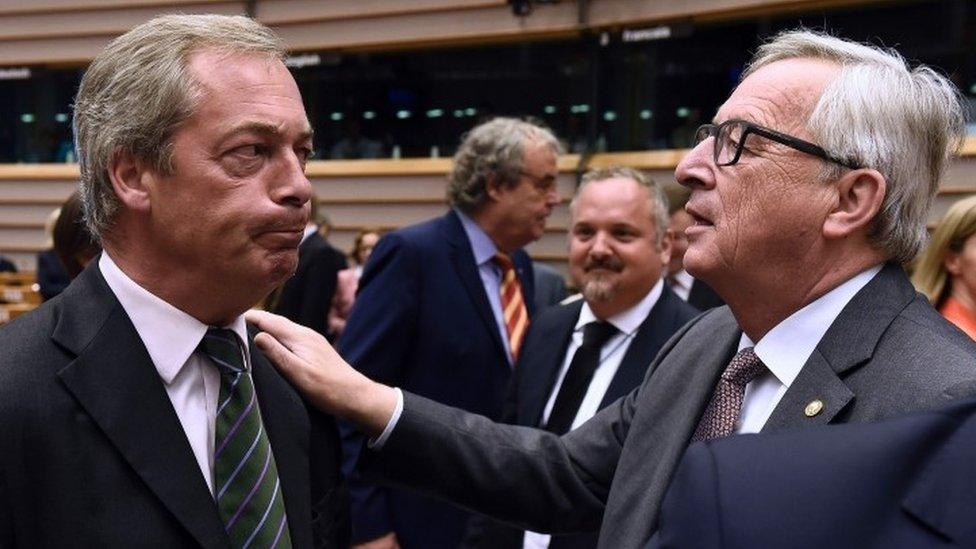Martin Schulz to run in German election, leaving EU parliament
- Published
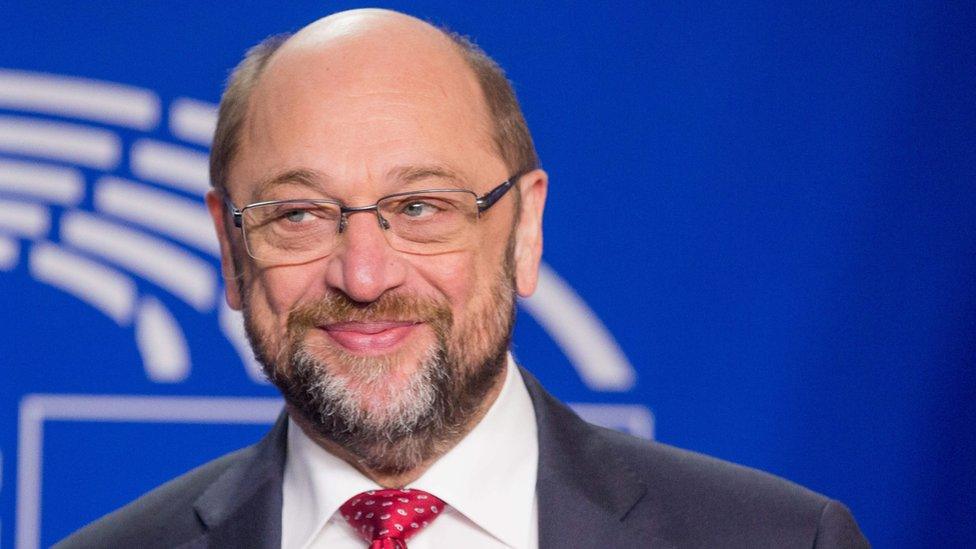
Martin Schulz is a political heavyweight in the EU and ardent champion of European integration
European Parliament President Martin Schulz says he will run for election to the German parliament next year, instead of seeking a third term in his EU post.
He will be the top candidate of the centre-left Social Democrats (SPD) in the industrial, densely populated North Rhine-Westphalia region.
He did not comment on speculation that he might try to succeed Angela Merkel as chancellor, or seek a cabinet post.
The SPD is in Mrs Merkel's government.
"Next year I'll be top of the SPD list in North-Rhine Westphalia... it was not an easy decision," he told reporters.
"More than ever the world needs a strong, self-confident, united EU... We need Europeans who stand up for their values and convictions," he said.
Nationalist challenge
Anti-EU nationalists are expected to gain significant ground in several key elections next year - in the Netherlands, France and Germany.
The UK's Brexit vote and the triumph of US President-elect Donald Trump - a critic of the EU - have given a big boost to nationalists, who oppose the EU's liberal agenda.
"We need to strengthen what previous generations built... we need to narrow the inequalities within and between societies," Mr Schulz said. "Germany has a special duty in this... I'll work on it from Berlin."
The parliament's lead negotiator in the Brexit talks will be Guy Verhofstadt, like Mr Schulz a veteran of EU politics. He heads the liberal ALDE group and previously served as Belgian prime minister.
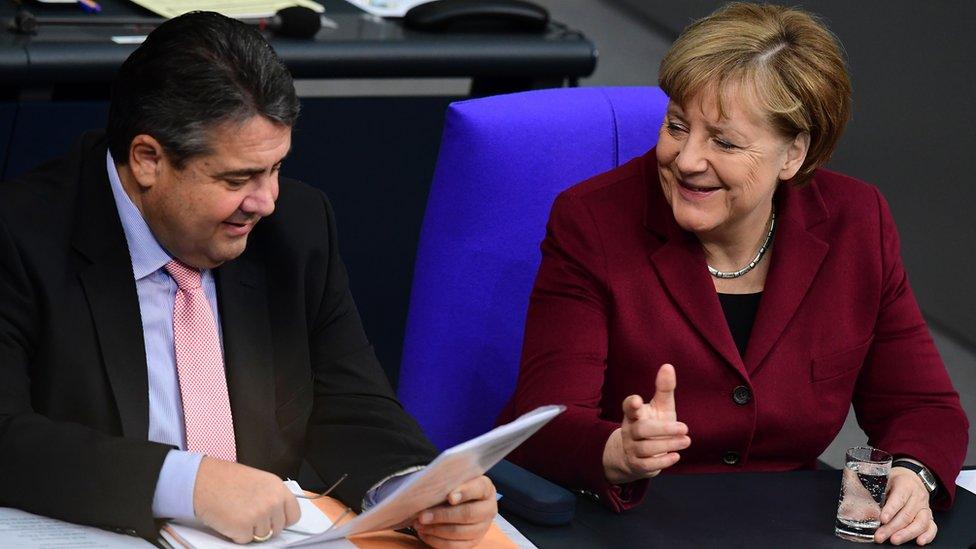
SPD leader Sigmar Gabriel (L) is vice chancellor in Mrs Merkel's ruling coalition

Rivalry in the SPD - by Damien McGuinness in Berlin:
Martin Schulz's decision is a sign that Germany's political heavyweights are preparing for next year's parliamentary elections.
But the problem with heavyweights is they don't fit the current anti-elitist political mood. Critics say the merry-go-round of the same old faces in German politics shows a lack of imagination.
Those with a conspiratorial disposition suspect that SPD leader Sigmar Gabriel still wants to run as the left-wing challenger to Mrs Merkel, but that he is creating a sham battle within the left. That would avoid the impression that he is a shoo-in.
Mr Gabriel's ratings are low. But he is seen as tough enough to attack Mrs Merkel.
Whoever does decide to take on Mrs Merkel however should not be envied. She sits slap-bang in the hard-to-beat centre-ground, and is seen by many as the guarantor of stability.

How the European Parliament works
Mr Schulz is seen as a potential SPD rival to Mrs Merkel, a veteran Christian Democrat who plans to run for a fourth term as chancellor.
But Mr Schulz might also replace Frank-Walter Steinmeier as foreign minister, analysts say.
A former bookseller, Mr Schulz hails from Aachen near the Dutch and Belgian borders, and once had ambitions to be a professional footballer.
He famously clashed in the European Parliament with former Italian Prime Minister Silvio Berlusconi, who likened him to a Nazi concentration camp guard.
Powerful post
The parliament president is one of the EU's triumvirate of powerful presidents. The others are European Council President Donald Tusk and European Commission President Jean-Claude Juncker, who are in the European People's Party (EPP), the conservative bloc which won the 2014 European elections.
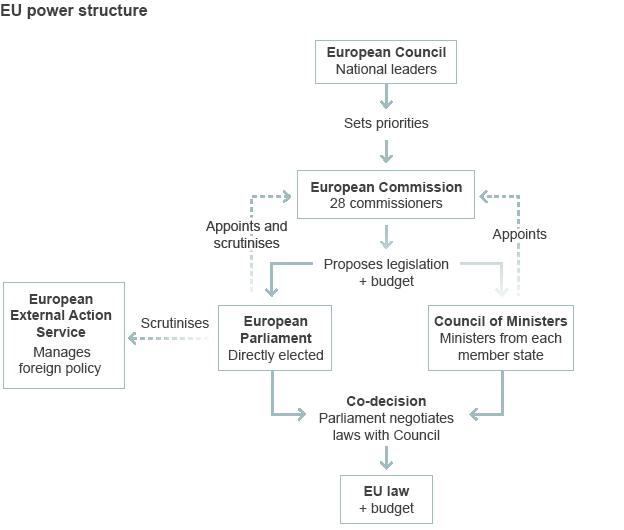
By convention the EPP and Mr Schulz's centre-left socialist group, the Socialists and Democrats (S&D), share the top EU posts. But smaller groups, such as the European Conservatives and Reformists (ECR), object to that arrangement.
The parliament will hold an early election in January to appoint a replacement for Mr Schulz, who has been in the post since January 2012.
Mr Schulz became an MEP in 1994, after spending 12 years running a bookshop.
He is married with two children and enjoys reading, history and football, his official European Parliament profile says, external.
- Published8 September 2016
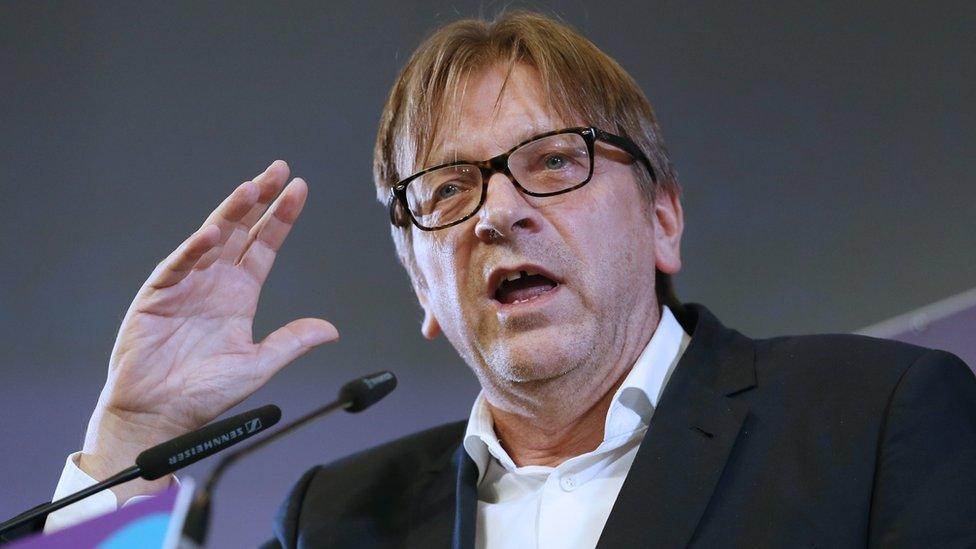
- Published28 June 2016
